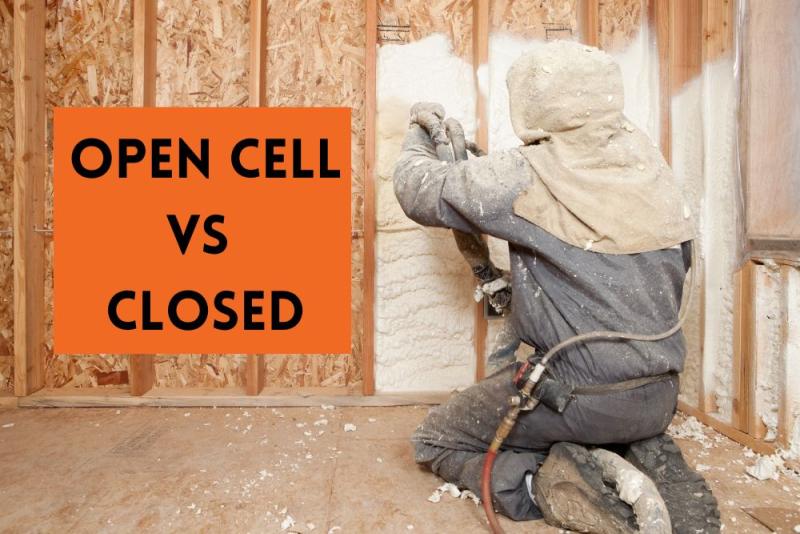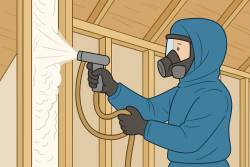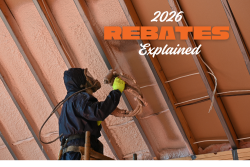Choosing proper spray foam for your home insulation is tricky, as multiple options exist. If you do an online search, you will come across different opinions - some saying one is better than the other. It is hard to pick one; therefore, you are advised to consult with a professional insulation contractor before insulating your home. Professionals can analyze insulation requirements specific to your goals, needs and budget. In this article, we have described key differences and similarities between open and closed cell spray foam to help you decide which one suits best for your requirements.
Key Differences Between Open-Cell vs. Closed-Cell
Cell Structure
Cell structure and the material are primary factors differentiating closed cell from open cell spray foam. The little air bubbles or gaps in each foam cell are characteristic of the open cell foam. This type of structure provides flexibility and a soft texture. One can mistakenly believe that open-cell foam will have moisture issues because it is more water permeable than closed-cell foam. The open-cell material does not draw moisture from the air or water like a sponge.
On the other hand, the cell structure of the closed foam is opposite of open cell foam. In it, cells are densely packed together, leaving no room for gaps. This structure prevents air or moisture from entering or passing through the foam, making it stiffer than open cell foam. Its cell structure and rigidity also increase the structural stability of the building in which it is installed. Reading this, you might think that definitely, closed cell is better than open cell spray foam. However, we recommend you read the whole article to find more.
Density
Density depends on the cell structure. The rigid cell structure in closed cell spray foam makes it denser than open cell spray foam. Usually weighing between 1.75 and 2.2 pounds per cubic foot, closed cell foam is three to four times heavier than open cell foam. The flexible and soft open cell foam has a lower core density, nearly 0.5 pounds per cubic foot. Open cell foam will perform far better than closed cell because of its lower density in sound dampening. Open cell foam's thicker, the softer substance will significantly outperform closed cell foam's tight, compact foam in dampening sound waves.
Key Benefits of Open & Closed Cell Spray Foam
Benefits of Open Cell Spray Foam
Open cell spray foam is cost-effective compared to closed cell spray foam. The manufacturing cost of open cell spray foam is lower than closed cell spray foam. Since open cell spray foam expands far more quickly than closed cell spray foam, it fills your home's cracks and crevices much more rapidly. Additionally, open cell spray foam expands more than closed cell spray foam; consequently, less material can insulate the same amount of space.
Benefits of Closed Cell Spray Foam
Closed cell foam adds to the structural stiffness of the building because of its rigidity and cell structure. Due to its densely packed, closed-off cell structure, closed-cell spray foam does not permit any vapour or water to flow through at the proper thickness and applications. Spray foam with a closed cell structure may efficiently reject bulk water and is acceptable for usage in flood-prone locations because it won't degrade there.
Shared Benefits
Open and closed cell spray foams share similar qualities, offering tremendous benefits and value to consumers. For instance, both these types of spray foam create an air barrier that increases energy efficiency and insulation of your home. Electricity costs for home cooling and heating reduce because these insulations prevent air leakage. Closed and open cell spray foams are equally suitable for improving home indoor air quality. There is no possibility of the insulation sagging or settling over time because both open and closed cell foams cling to the surface when sprayed.
While open cell and closed cell spray foams have distinct advantages, they also have a lot in common to offer value to consumers. Contact Reitzel Insulation, an expert insulation contractor in Waterloo, to get an accurate assessment and material choice for your home insulation.


















